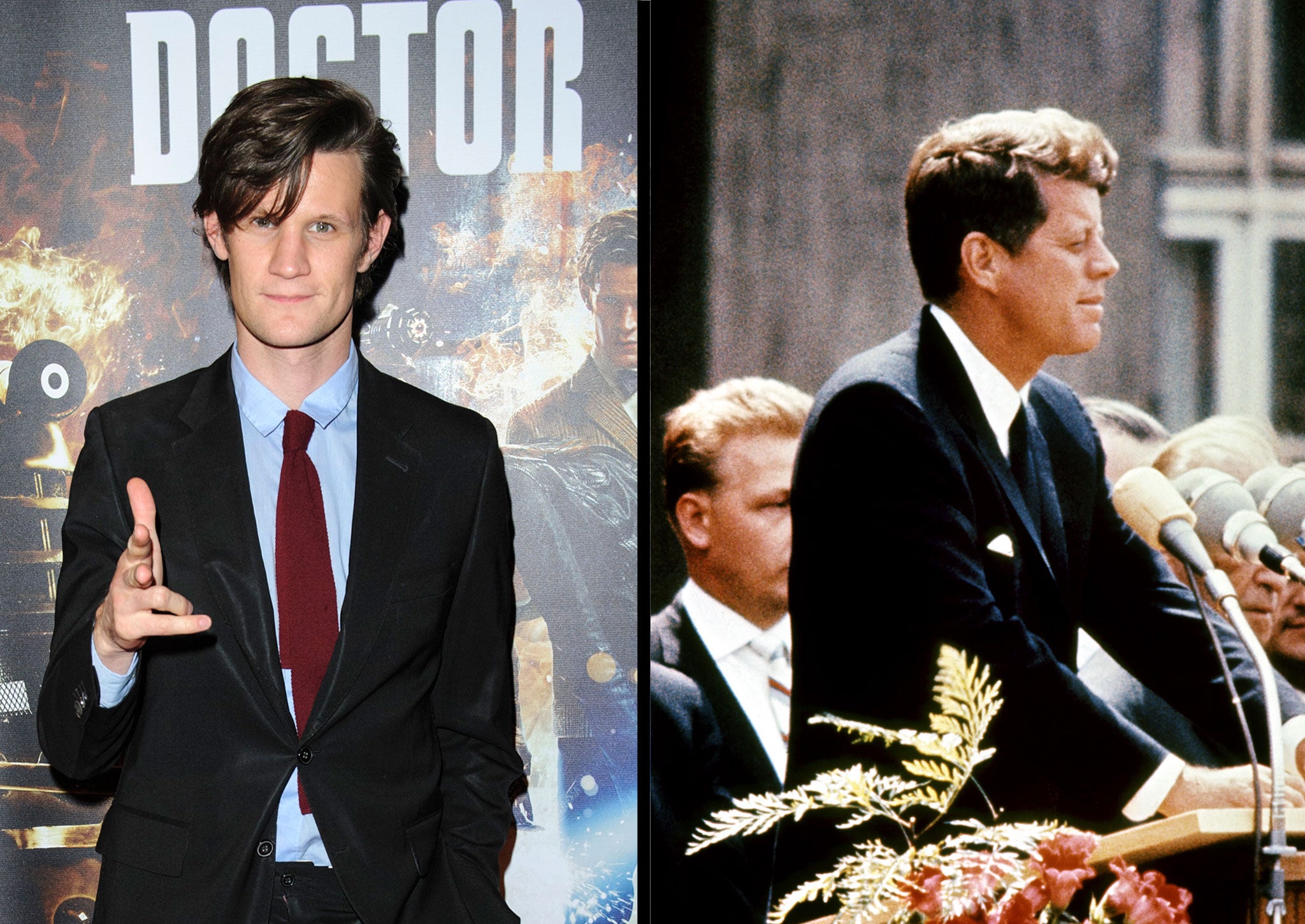Debate: Which has had more lasting impact, the assassination of JFK, or sci-fi series Dr Who?

Your support helps us to tell the story
From reproductive rights to climate change to Big Tech, The Independent is on the ground when the story is developing. Whether it's investigating the financials of Elon Musk's pro-Trump PAC or producing our latest documentary, 'The A Word', which shines a light on the American women fighting for reproductive rights, we know how important it is to parse out the facts from the messaging.
At such a critical moment in US history, we need reporters on the ground. Your donation allows us to keep sending journalists to speak to both sides of the story.
The Independent is trusted by Americans across the entire political spectrum. And unlike many other quality news outlets, we choose not to lock Americans out of our reporting and analysis with paywalls. We believe quality journalism should be available to everyone, paid for by those who can afford it.
Your support makes all the difference.
What's going on?
At precisely 5.16pm on 23 November 1963 the world stopped…as a hauntingly evocative theme tune heralded the earthly arrival of a mysterious time traveller known as Doctor Who. Of course, just 24 hours earlier the assassination of JFK had also caused a bit of a rumpus.
As both epoch-shaking events are marked with lavish 50th anniversary commemorations, it’s time to ask which of these landmarks has actually had the most impact on the lives of people today?
Case for: JFK Assassination
“If anyone’s going to kill me, it should happen now,” JFK reportedly told his wife Jackie, as the President basked in the glow of the successful resolution of the Cuban Missile Crisis in October 1962.
Not for a mortal President, the endless regenerations conjured up by a clever scriptwriter to revive each iteration of Doctor Who.
The assassination which followed a year after President Kennedy’s prescient remark stopped the world, and continues to grip the imagination because its consequences still reverberate.
Did our era of stage-managed, security-bubble politicians hatch from the President’s insistence on letting the public get up close and personal with its elected leaders?
In fact, by most measures, Mr Kennedy’s political legacy is modest. He was not a bold liberal reformer as legend has it; rather, he was a cautious and pragmatic moderate.
While he appeared to be hitting his stride in his final year in office, it was his successor, Lyndon Johnson, who enacted historic welfare and civil rights reform. Whether Mr Kennedy would have kept the US out of full-scale war in Vietnam – as his supporters have maintained – can never be known.
Rupert Cornwell
This was one of the most horrifying events of the 20th century, broadcast on television so that millions could - and did - see it. Forget the political implications, this event chilled hearts. It is fair to call it the most traumatic peacetime event of the last hundred years. Fiction like Dr Who cannot compare.
Case for: Dr Who
From the first note of the electronic theme music, Doctor Who was more than just one TV serial among others. The music really was ahead of its time, before the use of synthesisers in pop music and anticipating the entire Pink Floyd oeuvre. With the arrival of the Daleks in the second series, the grip of the show on the imagination of generations was tenacious. So tenacious that its BBC overlords invented regeneration, so that the show could go on after the retirement of William Hartnell, the original Doctor. The plot device by which the same character came to be played by a new actor gave the series the evolutionary advantage of adaptability.
Its reinvention in 2005 was a triumphant reassertion of British creative genius, and of the individual creative genius of Russell T Davies in particular, and a surprising rediscovery of family TV against the grain of the supposed atomisation of the age of the internet and the computer game.
What a metaphor for the power of fiction the Tardis is: a blue box that opened minds of so many not so much to science but to immeasurable realm of imagination and story-telling.
Doctor Who, having survived its own assassination attempt, when Michael Grade “axed” the series in the 1980s, has inspired, scared and exhilarated generations of fans by placing very human dilemmas at the heart of whatever alien life form-generated planetary catastrophe its writers have dreamt up.
The physics that allows Doctor Who to travel through space and time are sufficiently solid for Prof Brian Cox to assess its scientific contribution. The series itself has become one of Britain’s most valuable “brands”, cited by politicians as an important cultural export. On Monday, the red carpet was rolled out for the Daleks at a Buckingham Palace anniversary reception.
The JFK legacy is one of “what might have beens” but Doctor Who’s proven ability to regenerate and reinvent itself across time and space is one every politician must envy.
Which event did the BBC consider the most significant? When President Kennedy was killed, the BBC saw no reason to displace normal programming. Despite the enormity of the assassination, the debut Doctor Who episode was delayed for just 80 seconds by the Saturday teatime news.
Join our commenting forum
Join thought-provoking conversations, follow other Independent readers and see their replies
Comments